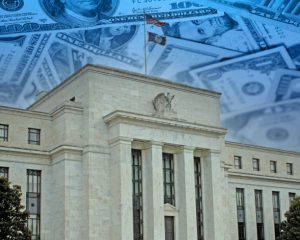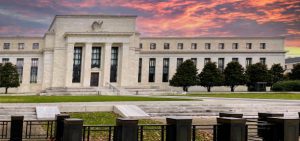
Jerome Powell is scheduled to deliver a speech, nominally focused on the labor market, at an event on Wednesday hosted by the Brookings Institution in Washington. It will be one of the last from policymakers before the start of a quiet period ahead of their Dec. 13-14 gathering. Chair Jerome Powell is expected to this week cement expectations that the Federal Reserve will slow its pace of interest-rates increases next month, while reminding Americans that its fight against inflation will run into 2023. Powell is scheduled to deliver a speech, nominally focused on the labor market, at an event on Wednesday hosted by the Brookings Institution in Washington. It will be one of the last from policymakers before the start of a quiet period ahead of their Dec. 13-14 gathering. The event provides Powell with a stage to echo fellow Fed officials in signaling they will raise their benchmark rate by 50 basis points at their final meeting of the year, after four successive 75 basis-point hikes.

But With Inflation Still Way Above The Central Bank’s 2% Target.
he will likely dovetail any talk of a downshift with a warning that rates will have further to rise next year. He’s probably going to use the speech to be hawkish and describe the dimensions of imbalance in the labor market,” said Julia Coronado, founding partner at MacroPolicy Perspectives. Powell could frame those labor market dynamics as “a reason that they need to be committed to a tight policy for longer,” she said. Investors expect the Fed to slowdown next month with rates peaking around 5% next year from the current ratnge of 3.75% to 4.00%, according to pricing of contracts in futures markets. Those expectations are in line with Powell’s remarks after the Fed’s meeting earlier this month, when he indicated that officials could fade the pace of rate increases as soon as next month, even as they ultimately raise rates to a higher peak than they previously thought. I don’t think there’s a lot of heavy lifting to do in terms of getting the market in line with where they likely see things going,” said Michael Feroli, chief US economist at JPMorgan Chase & Co.

What Bloomberg’s Economists Say…
“Ultimately, the Fed chair steers the final decision on rate policy — and Powell is likely to remind markets that the Fed isn’t about to pivot and will keep tightening until there’s compelling evidence inflation is coming down sustainably. Anna Wong, Andrew Husby and Eliza Winger Minutes from the Nov. 1-2 gathering showed widespread support among officials for calibrating their moves, with a “substantial majority” agreeing it would soon time to slow the pace of rate increases. But views around how high they will eventually need to lift borrowing costs was less clearcut, with “various” policymakers seeing a case for going somewhat higher than expected. Officials in September saw rates reaching 4.4% by the end of this year and 4.6% by the end of next year, according to median projections released after that meeting. Those forecasts will be updated at next month’s gathering. The Fed chief will be speaking on the same day that the Labor Department will issue an update of its Job Openings and Labor Turnover Survey, or JOLTS, a report Powell cites often for evidence that demand for labor is greatly exceeding supply. Job openings unexpectedly increased in September and another strong reading could suggest further wage pressures. His remarks will also come two days ahead of the November jobs report, which policymakers will also review ahead of their rate decision, along with upcoming inflation data. Financial conditions have eased since the Fed’s November meeting, with stock markets rallying and the risk spreads in bond markets narrowing, said Stephen Stanley, chief economist, for Amherst Pierpont Securities LLC. But Powell is unlikely to target those in his remarks, and may instead reiterate what he said earlier this month about how officials could soon use smaller rate hikes but rates may need to go slightly higher than previously expected to cool prices. If people come away thinking that the Fed is gonna raise rates to 5% or thereabouts, which I think is what he was kind of trying to hint at in November, then I feel like that he will have more or less done the job in terms of signaling,” said Stanley.


